Everything is collapsing and on fire so I wrote about my problematic feelings for Adam Driver
Days of embodiment and dissociation, the strange heterosexual appeal of monsters, and (not) healing the primordial wounds of patriarchy.
My strategy for coping with the ongoing strain of the real-time fascist klepto-garch whatever-whatever has been alternating bursts of obsessive engagement and cataclysmic shutdown, bright splashes of feeeeeeeling punctuated by periods of deep dissociation. As a middle-aged, disabled manic-pixie dream femme who relies, for my basic needs, on the social safety net that is currently getting shredded in a billionaire cybertruck MonsterJam — it all hits a little too close to home.
I. You can dissociate, but you can’t hide
I binged the last three Star Wars movies over the past few days. You know, the ones where Adam Driver, as brooding antihero Ben Solo/Kylo Ren, plays basically the same narcissistic abuser that he plays in Marriage Story?
Driver, 31 years old in Star Wars: The Force Awakens, is 6’2”, striking, and intense, with the kind of resonant, baritone voice that carries in crowds and seems pretty standard for Sith Lords (see: James Earl Jones’ Darth Vader). He also has the unconventional good looks of an exotic breed of shorthair cat.
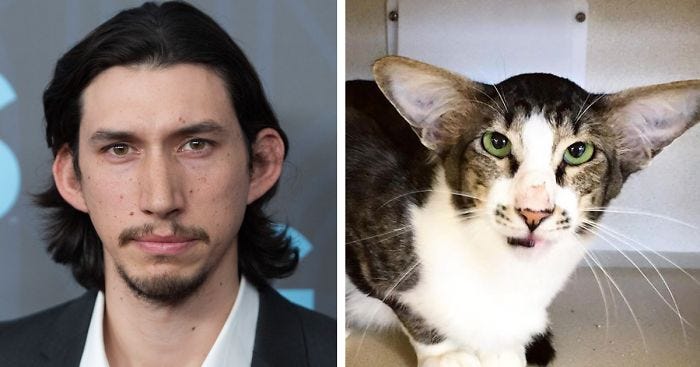
Driver plays the toxic boyfriend character an awful lot. In addition to his roles in Star Wars and Marriage Story, there was his breakout performance as Lena Dunham’s love interest in Girls — and I haven’t seen Girls, but I absolutely did ask Google’s creepy AI whether his performance in Girls was on brand, and received the following reply:
In Star Wars: The Force Awakens, as the adversarial courtship between Driver’s character and his love interest, Jedi hero Rey, unfolds, there’s this moment where Driver offers Rey his hand and, in an effort to persuade her to be his Dark-Side-of-the-Force girlfriend, pulls a line out of the abuser cliché playbook:
This kind of pick-up artist shit should be a dealbreaker. But for Rey, it’s not. The movie’s mythology does some work to justify Rey’s attachment to Ben/Kylo: the two are twin flames “a dyad in the force” — mystically, psychically connected across time and space. Sure, their dynamic is based on manipulation and violence. But what’s a little toxicity between star-crossed lovers?
The chemistry between the characters during this scene, incidentally, is palpable. You could cut the tension with a knife. You could detonate it with a whisper.
Gazing into the portal of the television screen, I tell myself: You can dissociate, but you can’t hide. No matter where I go, the themes of toxic, coercive masculinity are there. They run through politics, art and journalism, and personal relationships. Patriarchal violence is endemic to the culture. Of course it comes up in films — the culture’s waking dreams — in these ambivalent forms.
And of course I respond to it with ambivalence.
II. Texting my ex, part I
There is something in me that is compulsive and habitual — and that, after awhile, becomes calcified and blind to the very logic of pleasure and reward according to which its circuitry was wired in the first place. The circuit that wants to text my ex doesn’t care that I no longer actually want to talk to him. Just like the circuit that wants a cigarette can’t seem to organically connect with the fact that, when I encounter it in real life these days, cigarette smoke grosses me out. What even is addiction? Ghosts in the mechanisms of decisionmaking, cognition.
I can’t unlearn his number. I can’t unremember the way he sometimes makes me feel. The flash of the lure and tug of the hook. Memories with barbs. You know the negativity bias they’re always writing thinkpieces about, how it’s supposed to be something like five times easier to recall negative experiences than positive ones? I call bullshit. Craving shreds that paradigm to tatters. My craving mind pours over moments of triumph and tenderness, connection and care, like collectible novelty cards; the carnage around those moments gets blurred to smoke.
I know better. But the heart wants what it wants. Or, as my friend (and addiction professional)
sometimes says: Where there’s dopamine, there’s hopeamine.III. Romantic-comedy behavior gets real-life man arrested
If you squint hard enough, heterosexual courtship rituals and harassment behaviors can sometimes pretty easily be mistaken for each other. Sometimes, the difference between cute and creepy is whether the person on the receiving end of the conspicuous workplace-delivery of flowers, or of “our song” blaring outside their bedroom window in the dead of night, is consenting to the attention.
There’s a persistent narrative that weaves through the quests of gilded fairy-tale royals and the foibles of hapless romantic comedy bros, that “winning the girl” is something men can achieve through force of will— nay, force of masculinity — through trying hard and overcoming odds.
There’s no place for “the girl’s” preferences or experience in this framing of courtship.
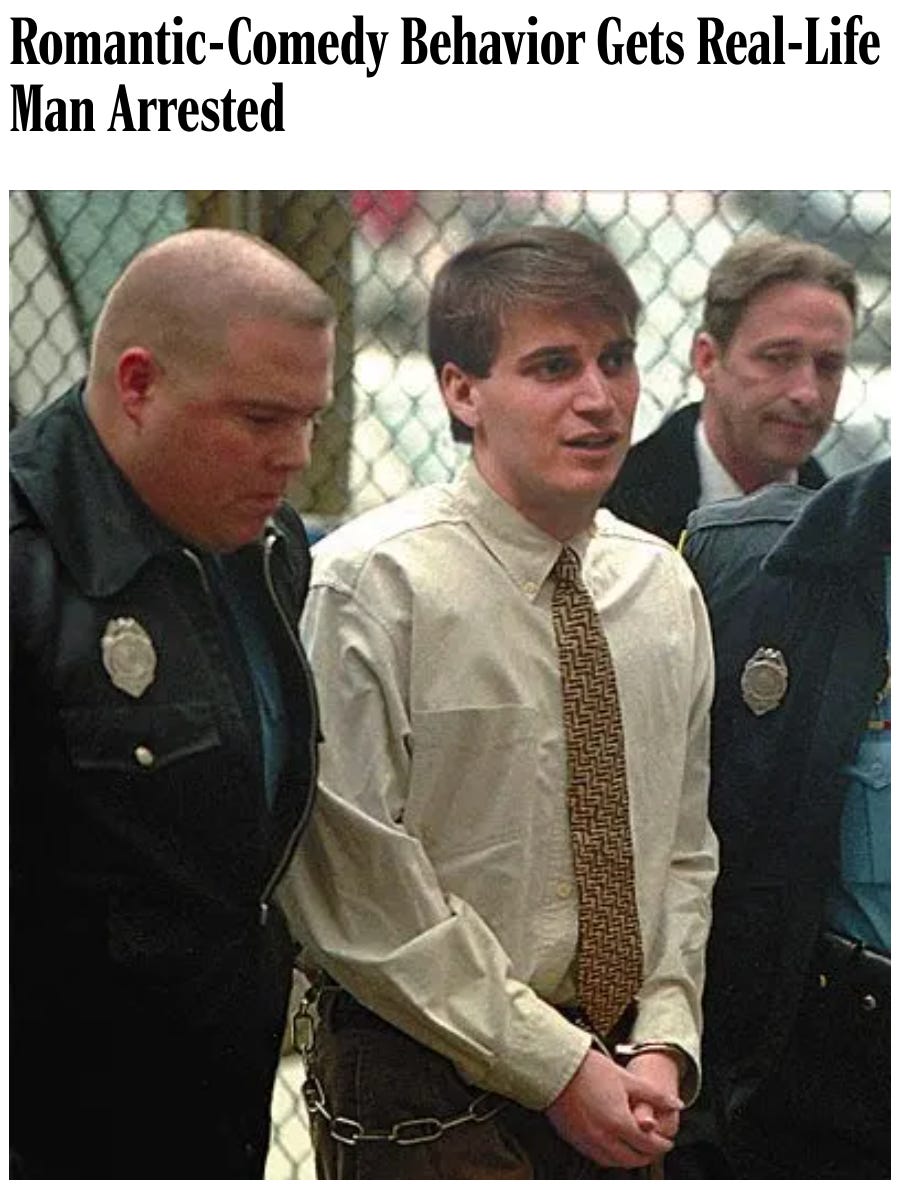
And the implications of this for straight men in terms of consent and entitlement are clear. But there is also significant impact on women and femmes — who may learn to conflate aggression, persistence, and pursuit with care in ways that we can be critical of, but probably can’t ever really extricate from, because we are always going to be of the primordial cultural soup from whence we emerged.
IV. The culture screaming in livestream
I read the news today—oh, boy.
It’s as if someone has turned my civilization inside-out. Everything that was secret is now out in the open. It’s a kind of a liberal nightmare: Everything that is supposed to be on the inside, covered by the flesh and hair of the state apparatus, is now on the outside. Active participation in genocide has always been a US governmental pastime, but US civilians haven’t always had widespread access to the personal instagrams of some of the people most affected by the horrors. The government has always targeted dissidents, but the scale, the lack of plausible deniability, makes this era feel different. The insides are on the outside, now.
A scientifically-minded kid may open the back of a watch and see it, in a flash of destructive inspiration, in pieces. Do some people look at Social Security and see deconstructed mechanisms of privatization and deliberate cruelty?
Exploitation, coercion, and violence threaten to subsume what is most precious.
V. Twilight misses me by inches; Phantom hits me smack in the teeth
Twilight — the books and the movies — came out after I’d moved past that peculiar period of young femme vulnerability when we wake up to the twin, inexorable facts that we have something that people want, and that makes us prey. I feel like I dodged a bullet with Twilight. Because I might have been the kind of young teenager who resonated way too hard with the girl whose lovers were literal monsters who literally wanted to devour her. (Btw: If you’re interested in these topics and haven’t seen ContraPoint’s brilliant video essay on Twilight, I highly recommend hitting that up next.)
But I did have Phantom of the Opera.
I was a baby queer, a theater nerd, a music geek. So of course I loved musicals. In middle school and high school my theater-kid friends would hide out in the music room during lunch period and belt out the problematic Broadway torch songs of our day.
Phantom screwed me over. Phantom set me up.
Kidnapping, murder, and extortion should be a dealbreaker. But high school girls and ardent fans of Phantom read the show not as a horror story, but as a love story. A story in which a young ingenue saves herself, and everyone she loves, from the raging, violent megalomania of an older patriarch — by loving him enough that he renounces his violence to save her. What a fucking fucked up fantasy, right?
Twilight’s Bella Swann takes a completely different approach to the problem of allying herself with monstrous men: ultimately, she becomes a monster herself.
VI. The battleground of the imagination
My days pulse with fascination and cringe, engagement and dissociation, like a wave of cresting attention crashing into a trough of spacing out, resting, recovery.
Toxic masculinity, white cisheteropatraiarchy are threatening everything I hold dear. It’s only natural that I’m musing about my own relationship to the culture of dominance, my complicity with it, the way it has its hooks in me, and the ways that I both comply with and resist its demands in my life, in my relationships, and in the battleground, the fucking social battleground, of my imagination.
Our imaginations are where so much of this fight is happening.
I feel the threads of my identity — my whiteness, my Jewishness, my queerness, my disability, my campy and complex femininity, resonating, like open violin strings, with the cacophony wafting up from the orchestra pit of the public sphere. I feel how my experience of male desire and patriarchal violence is informed by the intersections I occupy.
The places where I hold privilege. The places where my marginalization and vulnerability takes my breath away. The places where I am in relationship with the enemy.
I think of the US president. I think about how easy it was to text my ex.
VII. An urgent rescue mission and the primordial patriarchal wound
In Star Wars, Kylo Ren is a Sith Lord, an architect and instrument of a fascist, genocidal Empire, a vast system of oppression. But he’s also Ben Solo, a human being who loves and suffers, who relates and is relatable. And Rey’s prime motive — along with, you know, saving the galaxy — is to liberate Ben, and his potent spark of humanity, from the death cult of the Empire.
Is there a sense in which the heterosexual urge to connect with toxic men is actually, among other things, an urgent rescue mission? Do these doomed attempts to “save” bad men take on such strange urgency, potency, because we are sublimating the societal wounds of patriarchal violence onto an interpersonal level — trying, on some level we can’t quite acknowledge, to heal an original patriarchal wound? If we can extricate the person — this man — from his misogyny —maybe we can do it at scale. Maybe we can save us all.
In other words, maybe part of the power of this trope comes from a subconscious desire to dismantle patriarchy itself — sublimated into longing to get some douchebag to connect with you.
VIII. Texting my ex, part 2
But people — men — don’t easily give up the privileges they enjoy, the resentments they nurture, and the entitlements that boost their sense of self-worth. You can’t save someone who doesn’t want to be saved.
Relatedly: I‘ve got to stop texting my ex.
But there’s a part of me that, like Rey, sees embedded in the corrosive and malevolent armor of toxic masculinity a soft, vulnerable human — and I want to reach past the armor and make contact with the person in there. As if, like Phantom’s ingenue, I can love him enough to make myself safe.
Trying to draw the humanity out of patriarchy. I think of that bit in Exodus where Moses, thirsty and impatient (and, I imagine, having had it up to here with getting the runaround from his patriarchal god), strikes a rock with his staff and demands water for his people.
Spoiler alert: Water gushes forth from the rock.
Spoiler alert: Moses is then denied entry to the promised land.
That sounds about right.
IX. Epilogue
In adrienne maree brown’s modern classic, Emergent Strategy, brown demonstrates that social systems are fractal; that is, patterns you observe at one level of the system reproduce themselves at other levels. So the patterns of patriarchal violence that we see on the level of interpersonal relationships are also apparent in international relations, economics, systems of governance, education — in all areas of life. brown cautions organizers and changemakers not to inadvertently reproduce, in their own organizations and relationships, the very hierarchies they are trying to disrupt.
That advice seems apt here.
More and more, I hope I can learn to love from health, not from wounding, with intention, discernment, and discipline. This is self-decolonizing work that I suspect will never be complete — as I suggested above, I think I will probably always have to live in uneasy, ambivalent relationship with patterns and tendencies that I can learn to be more critical of, but never entirely escape.
Meanwhile, everything is collapsing and on fire. And I am here, breaking and broken and healing and breaking and healing and breaking and broken again, sometimes spacing out before the television portal, devouring culture as it devours me; sometimes so vividly present and feeling that I’m afraid I’ll start bleeding from the eyes — a tiny particle of a body politic that is consuming itself with relish and rancor, while shrieking its anguish out the other side of its mouth. Or something.
Thanks for reading. I’m grateful to be on this journey with you.
And if you’ve made it this far — I’d love to hear your thoughts in the comments! Do you experience the ambivalent allure of toxic love — playfully, in fiction, or in life, with that ex you just can’t quit? And how are you surviving this intense cultural moment?

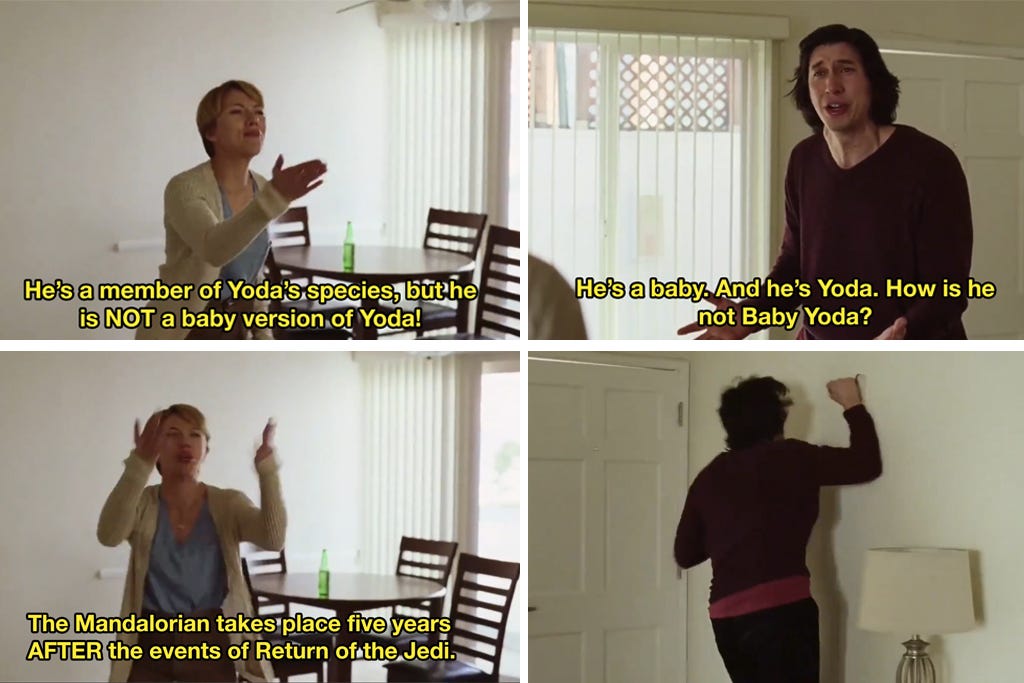
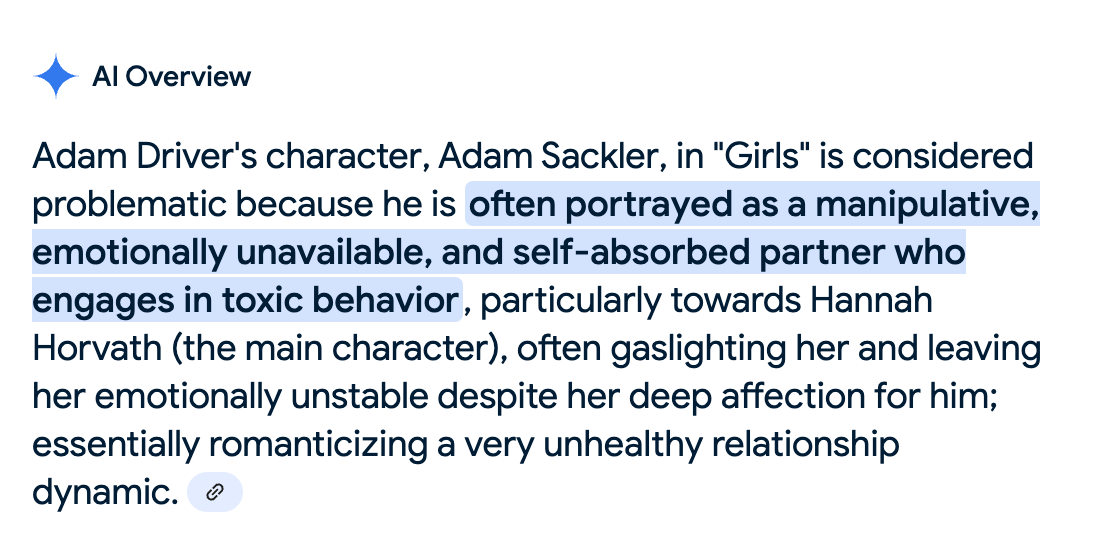
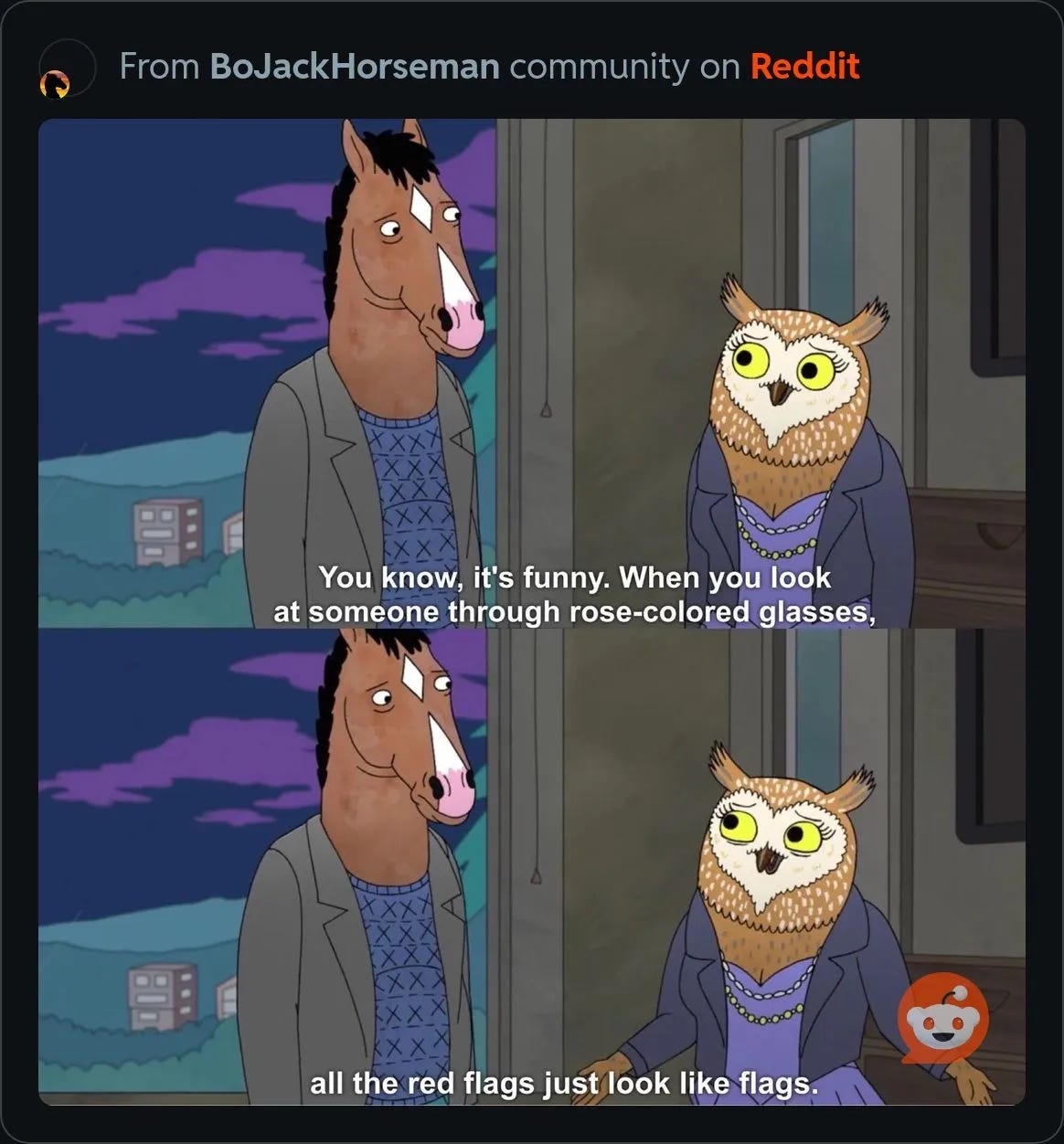
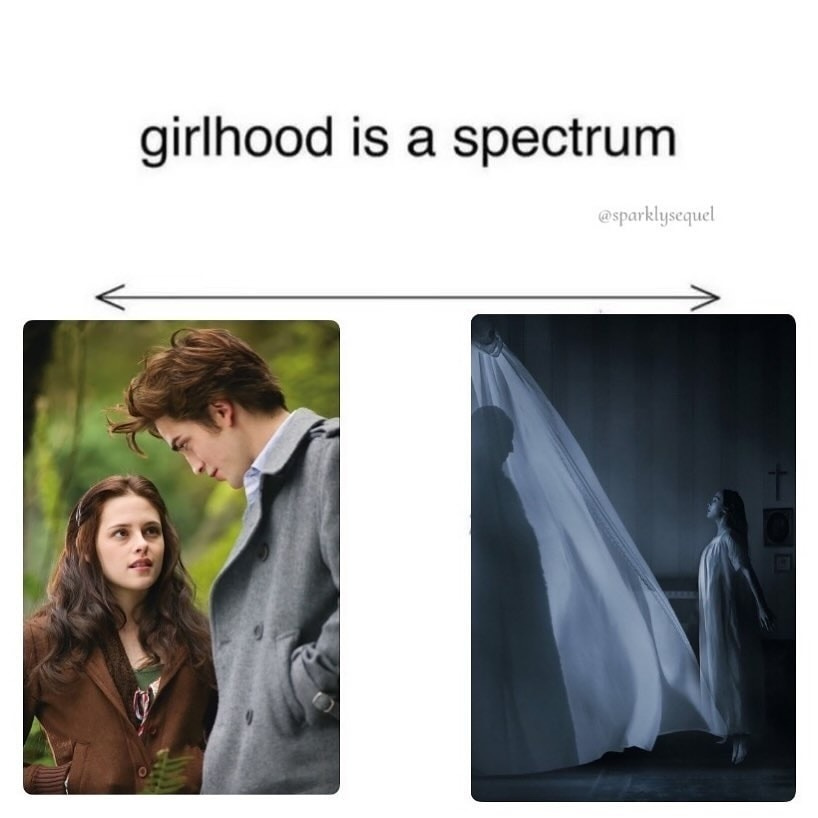
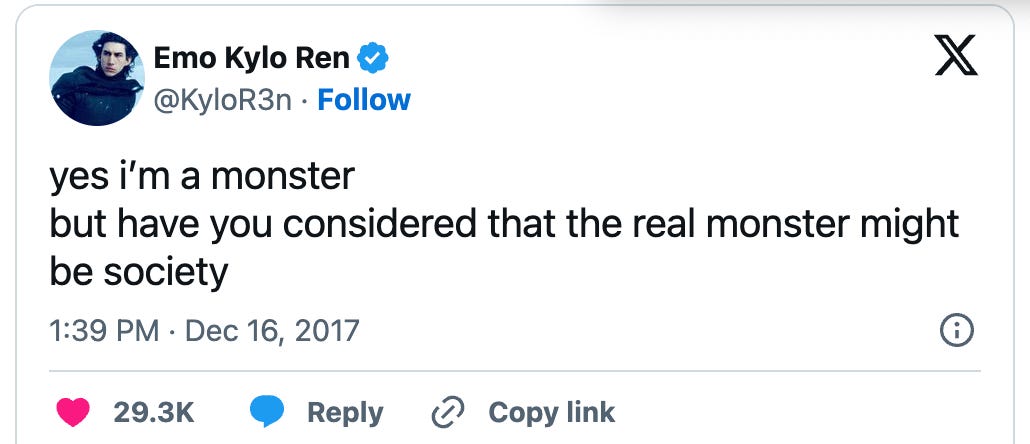
I love this piece and WOW! The epilogue! So touching and I relate. As for toxic love...I've become less willing to lift the glass of poison. And what I notice, is that when I hold my own boundaries, when I do only what I want and don't cave, unfamiliar as it is, the charge of the toxicity fades, either quickly or slowly. And the way I feel when there are boundaries and respect for boundaries starts to be more of what I want.
As always, your writing style, cadence, and sophistication -- your brilliance -- shines through in this piece. At least three times, my eyebrows raised and my lips moved parasympathetically in response to your poesy. As a cis male reader of your works who likes to think of himself as enlightened to systemic patriarchy, the foundational infrastructure of my psyche is grabbed by the shoulders and shaken and I question whether I am delinquent in my efforts to undo the damage that Sesame Street and James Bond did to me as a preteen. Thank you for both delighting my sense of written art and calling into question my resolve to debug the world code.